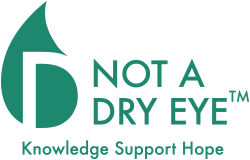A medication that is taken orally, Accutane (Isotretinoin is the generic name) is prescribed for acne to reduce the size of oil glands. It also reduces the quantity of oil produced by the glands. Because the medication is taken orally it can also reduce the size and oil production of the meibomian glands. Accutane’s effects on oil glands are irreversible. Anyone with meibomian gland dysfunction (MGD) should consider the risks of exacerbating the condition before taking Accutane.
Unfortunately, the Wall Street Journal reported that due to growing bacterial resistance to antibiotics, antibiotic therapy is becoming less effective in the treatment of adult acne. Instead of antibiotics the American Academy of Dermatology claims that evidence now supports the use of Accutane for the treatment of acne, citing minimal risks.
However, a 2002 study (Bozkurt, Irkeç, Atakan, Orhan, & Geyik) noted the negative effect of isotretinoin on tears. Although the authors conclude that the effects reversed within one month, a longer term study to determine the long-term effects on meibomian glands and tear film was not conducted.
And as early as 1991, Accutane was linked to decreased meibomian gland function (Mathers, Shields, Sachdev, Petroll, & Jester, 1991).
Furthermore, in a 2015 study, Moy, McNamara & Lin noted that “the secretory function of these glands is reduced and symptoms of dryness can greatly impact a patient’s quality of life.”
References
Effects of Isotretinoin on meibomian glands
Moy A1, McNamara NA, Lin MC.
Optometry and Vision Science
2015 Sep;92(9):925-30. doi: 10.1097/OPX.0000000000000656
View the full report
Lacrimal function and ocular complications in patients treated with systemic isotretinoin
Bozkurt B, Irkeç MT, Atakan N, Orhan M, Geyik PO.
European Journal of Ophthalmology
2002 May-Jun;12(3):173-6.
View the full report
Meibomian gland morphology and tear osmolarity: changes with Accutane therapy
Mathers WD, Shields WJ, Sachdev MS, Petroll WM, Jester JV.
Cornea
1991 Jul;10(4):286-90.
View the full report
Ocular side effects possibly associated with isotretinoin usage
Fraunfelder FT, Fraunfelder FW, Edwards R.
American Journal of Ophthalmology
2001 Sep;132(3):299-305.
View the full report

